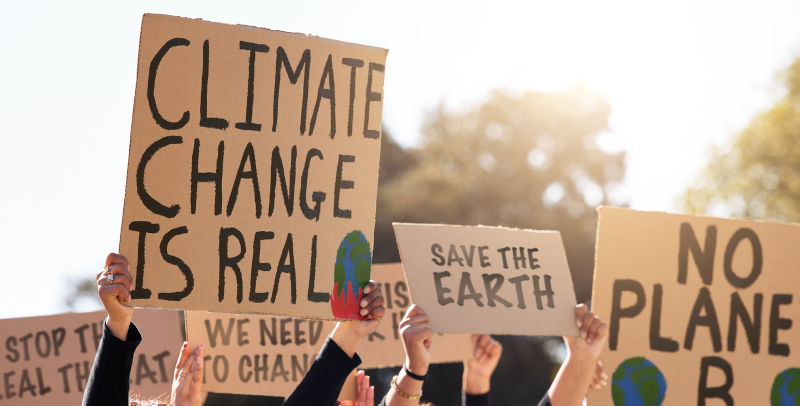Stop dissembling: International Climate Emergency Mobilisation is essential now
July 26, 2023
Whilst some incremental progress has been made following the 2022 change of Federal government, evidence confirms that both main political parties lack the imagination, courage and leadership to adequately address climate change.
For decades, climate change policy in Australia has been a political football refereed by vested interests, notably the fossil fuel industry and other denialists committed to preserving our high carbon emission economy. Hard denial has weakened in the face of indisputable evidence of climate disruption, replaced by soft denial and greenwashing which boasts of action but in effect kicks the can down the road for future generations to confront. Hence the political, corporate and institutional enthusiasm for the 2050 net zero emissions target, a wholly inadequate objective compared with the scientific necessity of reaching zero emissions as close to 2030 as possible.
The same refusal to face reality is evident throughout the developed world. Despite three decades of global climate negotiations, precisely nothing has been achieved in terms of the primary objective to rapidly reduce global carbon emission. They continue to rise at worst case rates, increasing by around 70% since 1990, when negotiations began, until 2022.
The result is an astonishing, but not unexpected, acceleration in the pace of climate change. Global average sea surface temperatures are now off the scale; Asia, Europe, the Middle East, parts of Africa and the US are experiencing massive heat waves, placing many areas on the edge of human survivability; an unbalanced Arctic jet-stream is wreaking havoc with Northern Hemisphere weather patterns; wildfires rage unchecked across Canada; accelerating ice melt in both the Arctic and Antarctic is causing major changes to ocean circulation systems and a severe El Nino event is likely later this year. These unprecedented extreme impacts are generating cascading secondary effects, not least food insecurity, health crises and large-scale migration. Millions have already died and livelihoods destroyed, many in countries whose contribution to global emissions has been miniscule. In addition, increasing emissions have now triggered climate tipping points with profound irreversible implication.
The World Meteorological Organisation has just announced the hottest week in recorded history. In short, we have crossed a threshold into uncharted, catastrophic, climate territory, posing an existential threat to humanity.
To be fair, on micro-issues, the Albanese government is a vast improvement on its predecessor. However on the major issue of climate change, it is a huge disappointment. Despite the fact that it was elected with a platform of serious climate action, its policies are contradictory and inadequate. A major concern is government approval of new fossil fuel projects without adequate consideration of climate consequences. Particularly export projects, whose emissions are accounted for by the consuming country and supposedly of no concern to Australia, conveniently ignoring the fact that the point of emission is irrelevant in terms of global climate impact. These projects are greenwashed by apparently unlimited offsets of dubious quality, with carbon capture and storage yet again used to justify fossil fuel expansion: technology which has not worked at scale for the last three decades despite massive investment.
The government has chosen to prioritise defence, notably the AUKUS deal, on the grounds that China, our major trading partner, is also the major threat to our prosperity. In so doing, it treats climate change with a narrow national security mindset, failing to see that climate is the greatest threat to every nation, to human security overall and indeed to the survival of civilisation as we know it. As current extreme events highlight, the climate threat is here and now; the China threat is not.
Any governments primary responsibility is to ensure the real security of the people. That means international climate emergency mobilisation now, built around unprecedented global cooperation, not militarisation. Particularly between the two largest emitters, China and the USA. Australia should itself be leading that campaign, not pandering to the avarice of a fossil fuel industry intent upon enabling climate catastrophe.
The first step is to ensure the community understands the real threat to our survival, to gain support for the difficult task ahead. Since late last year the government has had in its possession the first climate security risk assessment ever carried out officially in Australia. So far it has chosen to hide the findings from the community, probably because clear articulation of the threat exposes glaring policy weaknesses. Those findings must be made public.
Time has run out. Mass community action is now essential to force leaders to face reality. Climate change can no longer be treated as just another item on the political agenda. If we are to have a future, it is the agenda.
The authors a__re Executive Committee members of the Australian Security Leaders Climate Group.
For more on this topic, P&I recommends:
https://reneweconomy.com.au/bowen-its-too-late-to-avoid-the-climate-emergency/
